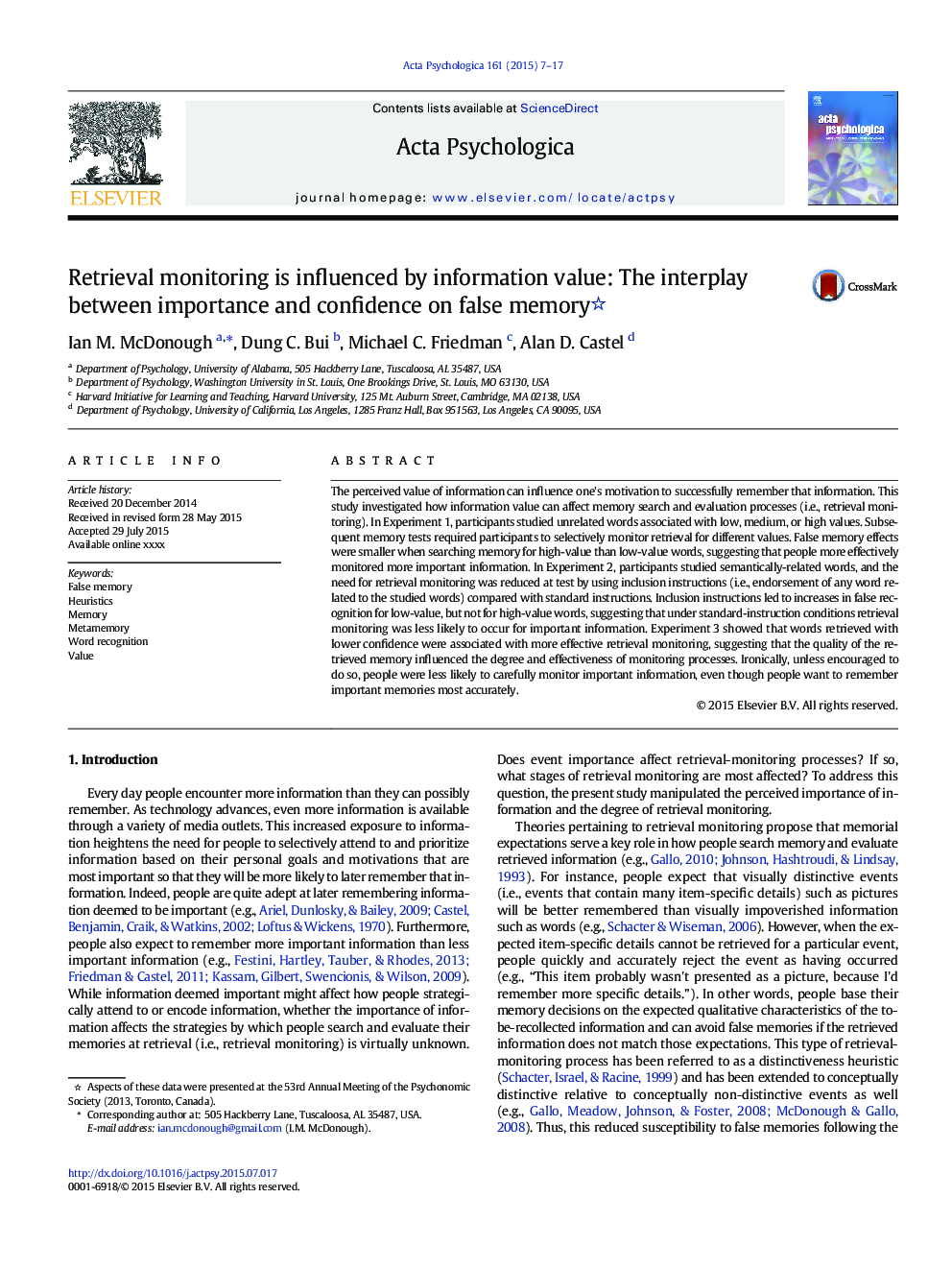| Article ID | Journal | Published Year | Pages | File Type |
|---|---|---|---|---|
| 7277196 | Acta Psychologica | 2015 | 11 Pages |
Abstract
The perceived value of information can influence one's motivation to successfully remember that information. This study investigated how information value can affect memory search and evaluation processes (i.e., retrieval monitoring). In Experiment 1, participants studied unrelated words associated with low, medium, or high values. Subsequent memory tests required participants to selectively monitor retrieval for different values. False memory effects were smaller when searching memory for high-value than low-value words, suggesting that people more effectively monitored more important information. In Experiment 2, participants studied semantically-related words, and the need for retrieval monitoring was reduced at test by using inclusion instructions (i.e., endorsement of any word related to the studied words) compared with standard instructions. Inclusion instructions led to increases in false recognition for low-value, but not for high-value words, suggesting that under standard-instruction conditions retrieval monitoring was less likely to occur for important information. Experiment 3 showed that words retrieved with lower confidence were associated with more effective retrieval monitoring, suggesting that the quality of the retrieved memory influenced the degree and effectiveness of monitoring processes. Ironically, unless encouraged to do so, people were less likely to carefully monitor important information, even though people want to remember important memories most accurately.
Related Topics
Life Sciences
Neuroscience
Cognitive Neuroscience
Authors
Ian M. McDonough, Dung C. Bui, Michael C. Friedman, Alan D. Castel,
